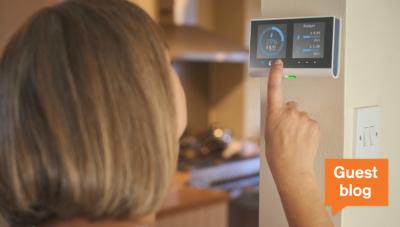Vulnerable energy consumers can't be ghosts in the machine
- Guest blog
- Publication type:
- Blog
- Publication date:
- Industry sector:
- Supply and Retail Market
Following extensive engagement, we’ve outlined a new Consumer Vulnerability Strategy to improve help and support to vulnerable energy customers.
As we invite views on the strategy, we’ll be featuring comment and opinion from industry and the consumer frontline on the key priorities. Here, Adam Scorer - CEO of fuel poverty charity NEA – shares his views on identifying vulnerability and smart use of data, and the questions it prompts.
Ofgem’s new Consumer Vulnerability Strategy is very welcome. It helps us understand what energy as an ‘essential service’ means and how people in vulnerable circumstances can be guaranteed to have access to it.
A key challenge is how richer data about consumer needs and behaviour can help to better support the most vulnerable consumers.
This sits alongside other recent interventions about driving a digital future for energy services and recognises how (not so new) entrants have brought a dynamic focus on energy as a service that engages consumers digitally.
This may be very familiar in most people’s lives as consumers, but is still fairly rare in their relationship to energy suppliers.
Ofgem’s new Consumer Vulnerability Strategy is an important challenge to the market on how this dynamism can benefit fuel poor and vulnerable households. For no group is this as important as for those on prepayment meters, especially those at risk of self-disconnecting.
Currently, when a prepayment meter user is forced to stop feeding their meter, they effectively disappear. They become ghosts in the energy machine. More often than not suppliers don’t know when, why and for how long someone has gone off supply. Or if they do, they find out when the point of crisis is over and the support on offer is too little, too late.
Data can transform any service for any household. It makes suppliers faster to respond, able to personalise services and can build a genuine relationship between what a consumer wants and how a supplier can deliver it. But while some chip away at the uniqueness of energy as a service, it really is different. When someone cannot afford enough, or any, of this service their lifestyles are not inconvenienced, their lives can be ruined and in some cases be in jeopardy.
Self-disconnection has been a part of the energy sector from the beginning. But it has been tortuously difficult to understand the scale of the issue, let alone the personal trauma behind each episode.
Smart meters can provide the data to spot and address self-disconnection. We could see if a gas heated home is using electricity but not gas in winter, or for how long a home has been without energy. It enables emergency credit to be applied immediately, and it allows for engagement with a vulnerable customer that makes sense to their own circumstances.
It is true that all consumers benefit from firms who will reset the customer-supplier relationship by using data and digital to understand their customers and how to engage and provide value to them.
It is not a problem if that happens first with the digitally-savvy, innovation-curious or the price-sensitive.
It is a problem if that same approach is not extended to those whose need is greatest and who stand to benefit the most.
The value of the Consumer Vulnerability Strategy is how it challenges all aspects of market and regulations. We hope it will prompt many questions throughout the consultation. It certainly has for NEA. Here are five of them related to self-disconnection.
- How can income become a greater priority as an indicator of vulnerability?
- Shouldn’t suppliers prioritise the installation of smart meters into households that currently have prepayment meters and at risk of self-disconnection?
- What do good smart prepay tariffs look like and how can suppliers be encouraged, or required, to bring them to market?
- What guidance should there be on how to spot and respond to signs of self-disconnection?
- Should there be a mandatory breathing space for vulnerable customers to get them over a crisis point?
This is a great opportunity to take self-disconnection seriously. If we don’t then we deserve to be haunted by the human cost of it.
Your views
We’re consulting on the Consumer Vulnerability Strategy until 8 August 2019. View and respond here.
Subscribe
You can stay up to date with our blogs and other news by signing up to Ofgem News.
Our series of guest blogs represent the views of the authors writing with a view to encouraging debate about important energy topics. They do not represent the views of Ofgem, nor should they be construed as an endorsement or commitment by Ofgem to take any particular course of action.

